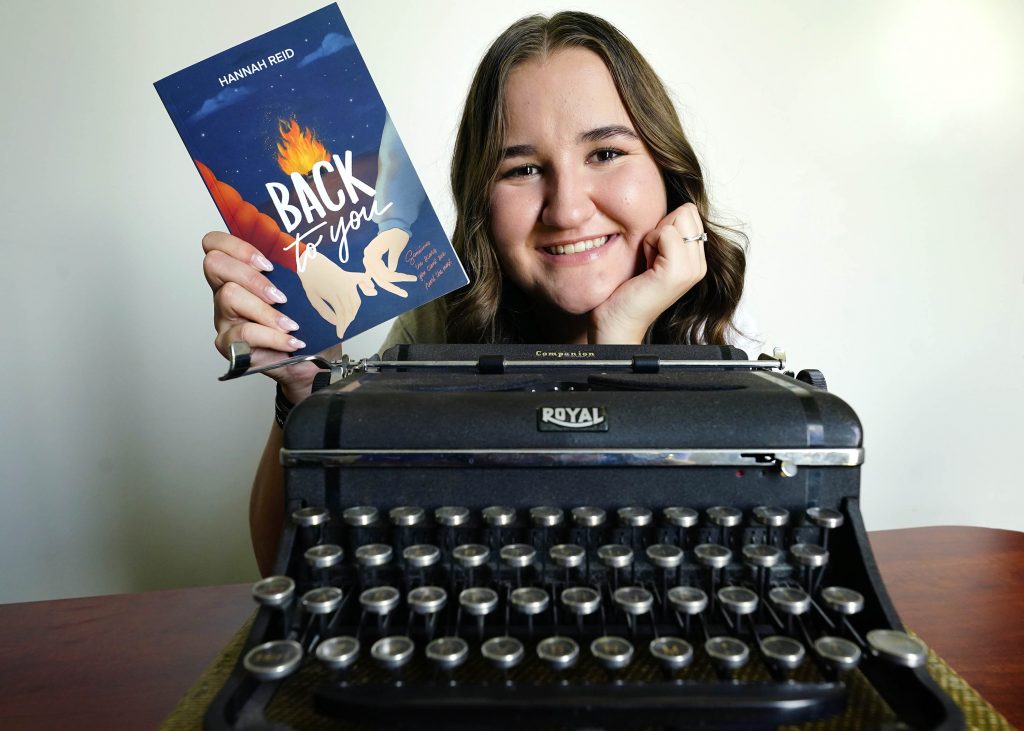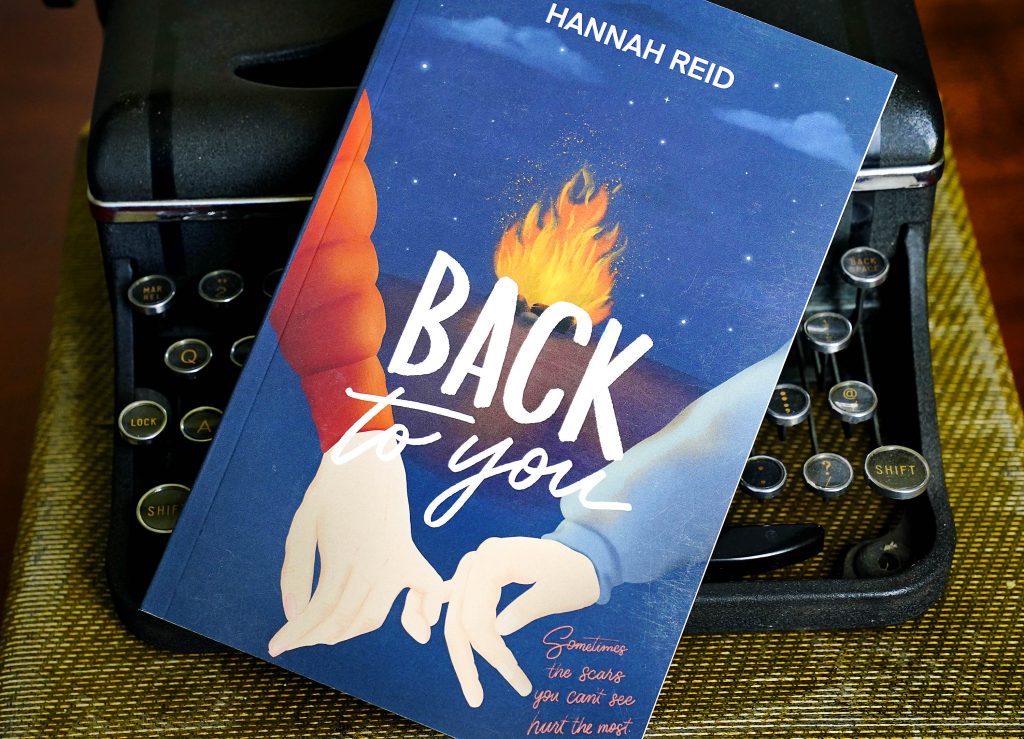
Grand Canyon University senior Hannah (Carpenter) Reid’s new young adult novel, “Back to You,” stands out among the many self-published debuts in its first two pages.
Dedicated to the heroes of Phoenix Children’s Hospital. Without whom I, nor this book, would ever have made it.
It begins:
“When I realized this feeling was never going away, I figured the best and only thing to do was search for a way to dull the impact.
“At first I tried the obvious things: biting my nails, talking through the rants, blasting my music through my earbuds so loud everything else was forced out.
“But my strategy was no match for the voice because it always found a way to sneak into my brain and bury itself ...”
There is a lot of Hannah Carpenter in this book (available on Amazon), though the story of Caliah Porter and her mental health struggles is fiction. Carpenter hopes others who face similar issues can feel heard.
Carpenter was born with abdominal organs in her chest cavity, her father crying as she was introduced to her grandmother, Carolyn (Reid) Boden.
“She had a 40% chance of survival,” Boden said. “But she’s got this heart. She’s an old soul. And she’s sparkling now. God keeps blessing her.”
Facing 59 days in intensive care, 10 hospitalizations and several surgeries in her first 10 years, Carpenter began to write stories, first with Crayons at age 4.
By 12, she asked her grandmother how to use an old Royal manual typewriter sitting on a family bookshelf. It belonged to Carpenter’s great-great-grandfather H. Frank Reid, a Presbyterian minister who wrote his sermons on it. She bought a ribbon for it and, in honor to the late minister and her grandmother, chose Hannah Reid as her pen name. “It’s my ode to them.”
By 15, she began a novel, channeling her anxiety from years of medical treatment for her congenital diaphragmatic hernia and therapy to help overcome the trauma of it.
“Writing was the best coping method,” she said. “I understood no one else could understand what it was like. It made me more anxious, and I was already introverted. I just struggled in high school with different relational issues; I didn’t know what I was feeling.”
What emerged was the novel’s Caliah Porter, who witnessed the death of a friend and faced the inner voices of anxiety and doubt that began to overwhelm her. The anxiety attacks are richly detailed, a physical sensation in her ribs.
“I wanted to be careful not to make Caliah entirely me, but I knew if I gave her the same sensations I had, it would allow me to paint the most vivid picture of her experience that I could,” she said.

Readers go with Caliah to therapy and learn her strategies to cope.
“She really learned a lot when she got out of her head and focused on the situation and people in front of her,” said Carpenter, who is a professional writing major at GCU. “What seems like a good idea in the moment – to isolate yourself and figure it out on your own – is actually going to hurt you more.
“I put her through some mistakes for her to realize this wasn’t the best way. I was really showing that allowing yourself to share what she was going through allowed others to trust her and share what they were struggling with.”
Carpenter says it is vital for her generation, engaged in “artificial interactions” online but “looking for that love and that bonding in interactions with humans.”
It took Carpenter a while to get there. Unsure that she wanted to dive into a busy campus right away, the Peoria native opted to study English at Glendale Community College for two years before coming to GCU to live on campus last year.
She learned writing methods to turn the book she began at 15 into a narrative, breaking down the components of storytelling. She used run-on sentences to mimic what’s it’s like to get trapped in thoughts and tapped into her own feelings to bring characters to life. She plastered her bedroom walls with sticky notes to organize the narrative.
“It was the difference between art and craft,” she said. “I loved the art of it, it was time to refine the craft.”
At GCU, she learned how to be brave in her writing in class and carried a notebook around campus to write her observations. She found friendship with fellow introverts in professional writing who enjoyed a quiet movie night or sitting in a shaded spot on campus.
While taking classes and working for GCE Publishing, mainly doing data entry for textbooks, she honed the novel more and hired an editor. She passed her book to a therapist for feedback so she wouldn’t be offering incorrect advice.
And then both sets of grandparents got behind the effort, offering financial support for its publication, she said.
When the book was released in early August, Carpenter quickly found it exhilarating to hear readers comment on her characters, who were high school students discovering the value of one another’s support.
In her own life, she also needed faith.
“It was a lot of giving it to God and establishing Christ above my emotions,” she said. “What I am feeling is valid, but it doesn’t have to be the end. Understanding that really strengthened my faith and my mental health as well.
“Growing closer to God showed me the power of weeping with friends, of healing wholly through His power rather than temporary fixes.”
The writing outlet allowed her to understand herself and events around her and how they can collide at times.
“It gives me the courage to dive into my own scars,” she said. “See, I write to understand.”
The story of Caliah Porter helped Carpenter grow. She met a young man on campus who became her fiancé. She found an outward voice to share – and hopefully help others.
“I just hope that they can see that everyone has things they struggle with, everyone has scars, even unseen,” Carpenter said. “They are not alone. They don’t have to wait until rock bottom to ask for help.”
Grand Canyon University senior writer Mike Kilen can be reached at [email protected]
***
Related content:
GCU News: Students' creative writing marches to many drums
GCU News: CHSS showcase is a scholarly, deeply personal experience



































































